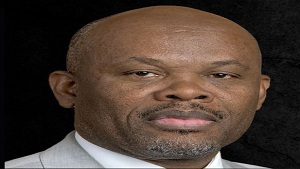The United Nations Children’s Fund (UNICEF) reports that over three million children worldwide are involved in prostitution, while the International Labour Organisation (ILO) estimates that one million people are trafficked annually for sexual exploitation.
Many victims are lured by false promises of a better life, particularly targeting vulnerable families in low-income communities.
Strategy and Security Expert Andy Mashaile spoke with Channel Africa, shedding light on the extent of the problem. Mashaile emphasised that the reported statistics only scratch the surface.
“We should add at least 10% to these numbers because many cases remain undocumented. Internationally, 1.2 million children are trafficked annually, with 600 000 of those from various African countries.”
Mashaile further explained how transnational organised crime syndicates exploit women and children, often extorting money from families. If ransom demands go unmet, victims are forced into sexual exploitation. He shared a harrowing account of an underage girl from the Philippines trafficked to South Africa, underscoring the severity of the issue.
The role of organised crime in human trafficking cannot be overstated. Mashaile pointed to South Africa's (SA) porous borders and corrupt officials as enablers of these crimes. “Some law enforcement officers collude with syndicates in exchange for financial gain, turning a blind eye to these atrocities.”
He described human trafficking as a highly structured criminal enterprise, often linked to drug trafficking, wildlife smuggling, and counterfeit goods. The lack of police resources further strengthens these networks.
“Sexual exploitation ranks high on the criminals’ agenda because they operate in ways that make them hard to track. Women, including professionals such as doctors and nurses, are kidnapped and trafficked with little chance of rescue.”
Mashaile highlighted the double-edged nature of technology. While artificial intelligence can help combat trafficking, it also facilitates criminal activity. He referenced notorious cases, including that of Thabo Bester, who lured women into dangerous situations via social media.
He also warned of fraudulent job offers targeting women. “Just two hours ago, I was contacted by a woman seeking advice about a job in Dubai. She had no information on her employer, yet she had already signed papers. This is how trafficking happens.”
Mashaile believes governments must do more to combat human trafficking. While efforts are in place, he suggests implementing digital identification systems to help track kidnapped individuals. “We need stronger preventative measures to dismantle these networks before more lives are lost.”
--ChannelAfrica--












